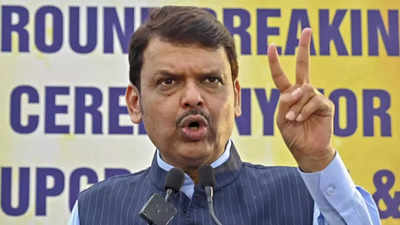
Fadnavis, a senior leader of the Bharatiya Janata Party (BJP), made these comments while addressing a gathering of party workers in Pune. He claimed that the MVA alliance was orchestrating an effort to secure votes through religious polarisation, particularly in the backdrop of rising communal tensions. His use of the term “Vote Jihad” echoed a familiar accusation leveled by the BJP in various states, accusing political rivals of leveraging religious identity to win votes, especially in sensitive areas where communal relations are volatile.
On the other hand, Fadnavis’ reference to “Dharm Yuddh” — literally translating to “religious war” — was seen as an attempt to paint the opposition as engaging in a religious battle for dominance. He alleged that the MVA’s actions were an affront to Hindu values and were meant to divide communities along religious lines. This fiery rhetoric is part of a broader BJP strategy in Maharashtra, where the party has sought to consolidate its Hindu vote base while attempting to weaken the MVA's position as a coalition of secular forces.
The controversy has quickly drawn responses from both political allies and adversaries. The Shiv Sena (Uddhav faction), which has been in a bitter power struggle with the BJP since the dramatic split of the Shiv Sena in 2022, has slammed Fadnavis’ remarks, accusing him of trying to stoke communal divisions to deflect from the BJP's own failures in governance. The NCP and Congress have similarly condemned the comments, calling them divisive and dangerous, and an attempt to undermine the state’s pluralistic ethos.
Political analysts suggest that Fadnavis' comments are a calculated attempt to reshape the narrative of the state elections, with the BJP facing an increasingly competitive challenge from the MVA. In particular, the opposition alliance has sought to present a united front, focusing on economic issues, social justice, and regional concerns. For the MVA, Fadnavis’ outburst may be seen as an indication of the BJP’s growing desperation to shift the focus from governance failures to identity-based politics.
As the battle for Maharashtra intensifies, both the BJP and MVA appear to be doubling down on their respective strategies. The BJP has leveraged Hindutva — a brand of Hindu nationalism — in its campaigning, while the MVA has emphasized secularism and social welfare. Fadnavis’ rhetoric feeds into the BJP’s narrative of protecting Hindu interests, while also attempting to create a dichotomy between the “secular” opposition and the “Hindu-first” agenda espoused by the ruling party.
The MVA’s leaders, including Shiv Sena’s Uddhav Thackeray, NCP’s Sharad Pawar, and Congress’ Nana Patole, have all rejected Fadnavis’ allegations, framing them as an attempt to distract from the government’s handling of key issues like unemployment, inflation, and the state’s economic recovery post-pandemic. Thackeray, in particular, has accused the BJP of misusing religion for electoral gains while undermining Maharashtra’s diverse identity.
In a state known for its complex and layered political landscape, this latest attack could have far-reaching consequences. Maharashtra is home to a vast array of communities, and both the BJP and the MVA are well aware that elections in the state are often decided by a few percentage points. With the 2024 general elections looming and state polls not far behind, both parties are keenly aware of the electoral importance of securing key constituencies, especially in rural and semi-urban areas.
Experts point to the potential for escalating communal tensions, with both sides now using religious rhetoric as a key tool in their campaign arsenals. While this may resonate with their respective support bases, there is a growing concern that it could lead to further fragmentation of the state’s politics, with long-term implications for its social fabric.
Fadnavis’ remarks also align with the BJP's broader electoral strategy in other parts of India, where the party has embraced a muscular form of Hindutva. This approach has been instrumental in bolstering its support among Hindu voters, particularly in states where religious polarisation is a potent force. For the BJP, Maharashtra represents both a challenge and an opportunity to expand its footprint in a state traditionally seen as a stronghold of regional parties.
